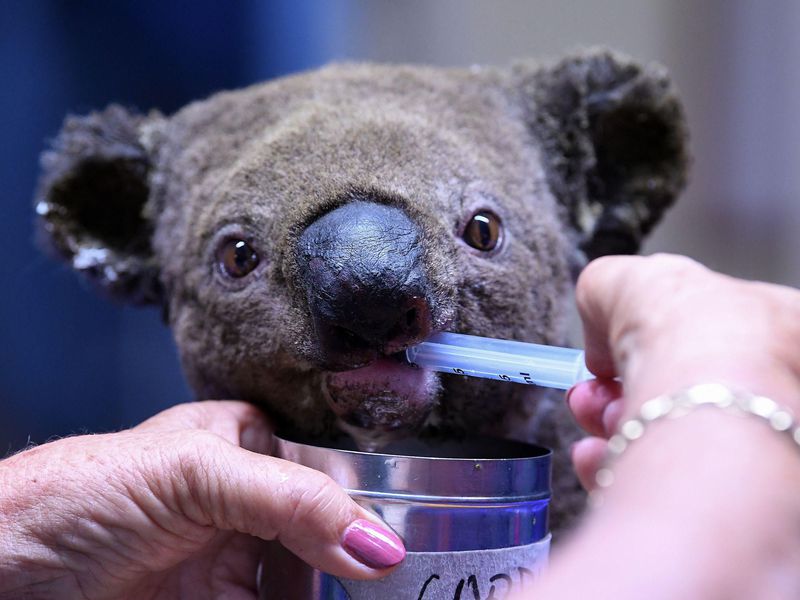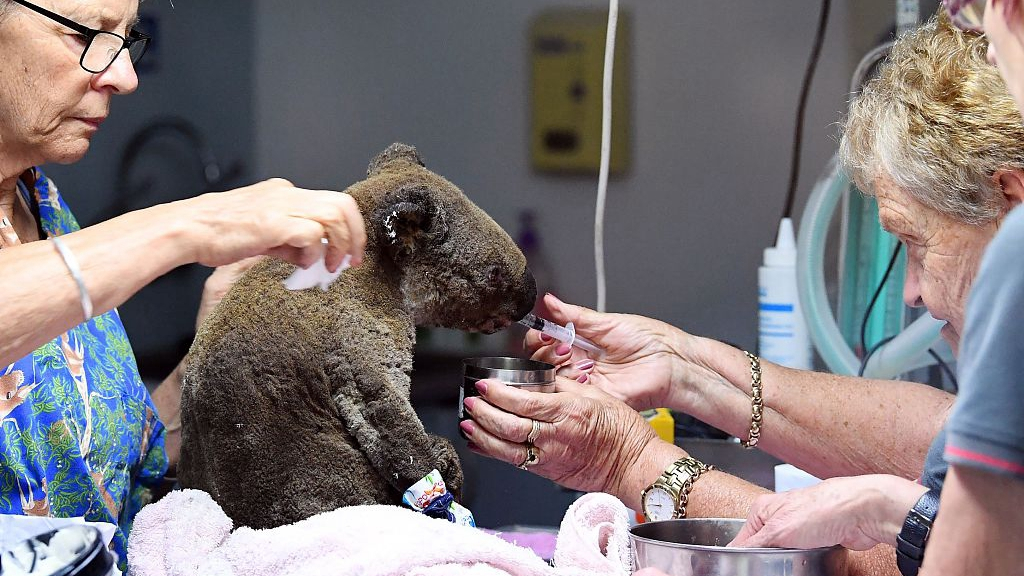Koalas are not functionally extinct, but they need our help

By Jackson Ryan
24 November 2019
(CNET) – The koala is one of the most iconic Australian marsupials. The grey fuzzballs spend nearly all their time in the trees, surviving on a diet of toxic gum leaves and a healthy routine of extended naps. As Australia suffered through unprecedented bushfires in the past two weeks, the plight of the koala has been front page news. Images abound of the marsupials, skin charred, dehydration plastered across their faces, crawling to safety as flames lash at surrounding bushland.
The bushfires wreaked havoc across Australia, destroying hundreds of thousands of hectares of bushland. It’s estimated up to 1,000 koalas may have died, including half the population living in Port Macquarie. A tragedy, for a species already struggling to survive against the effects of climate change, disease and deforestation.
A number of recent headlines suggest the bushfires destroyed up to 80% of the koala’s habitat, rendering the species ‘functionally extinct’. This has elicited a visceral response online, with articles being shared far and wide across social media. And that makes sense — the koala is such a beloved species inherently tied to the Australian identity and its decline speaks directly to failures in combating climate change. They’re an innocent bystander quite literally in the line of fire because of human inaction.
But the (somewhat) good news is they are not ‘functionally extinct’ and the bushfires did not push them to the brink. The idea the species was in danger was broached long before bushfires began to slither across the country.
On 10 May 2019, the Australian Koala Foundation (AKF), a non-profit dedicated to conservation of the iconic marsupial, dropped a press release stating the organization “believes koalas may be functionally extinct in the entire landscape of Australia” and koala numbers could be as low as 80,000. The declaration was made just prior to Australia’s last election, where climate change was a core political issue. [cf. Australian Koala Foundation declares koalas “functionally extinct”]
The press release did not provide information on how koala numbers were counted. The AKF did not immediately respond to a request for comment.
Following the initial declaration of ‘functional extinction’ in May, Christine Adams-Hosking, a conservationist at the University of Queensland, penned an article for The Conversation more accurately outlining the fate of the koala in Australia. In it, Adams-Hosking made it clear the functional extinction tag was one likely applied with a little too much haste. In a study conducted in 2016, a collaboration of researchers attempted to quantify how many koalas were left, but it’s a complex game.
“To determine whether each population of koalas scattered across eastern Australia is functionally extinct would require a gargantuan effort,” wrote Adams-Hosking. It’s incredibly difficult for scientists to get a full grasp on koala numbers across Australia, so categorizing the species as ‘functionally extinct’ is difficult. Later, in a report by New Scientist, Adams-Hosking said “there are koalas all over the place and some of them are doing fine.”
Dr. Jacquelyn Gill, a climate scientist at the University of Maine, commented on the new reports on Twitter, suggesting there may be conflicts of interest at play, with “a few cases … of nonprofits reporting exaggerated population declines.”

The koala is in trouble. This isn’t a way to downplay the current crisis: Australia’s extinction rate is the highest in the world and local koala populations are being erased.
There is no doubt koalas are in danger of disappearing for good. Population numbers have declined dramatically in the last century. The recent spate of bushfires play a role this decrease, but the story is much more grim. Hunting, during the 1920’s, killed hundreds of thousands of koalas. Urbanization has cut populations off from one another, lowering their genetic diversity and making them more prone to diseases like chlamydia. Habitat clearing has removed their food source.
However, headlines shouting the koala is “functionally extinct ‘after’ the bushfires” are potentially damaging. Exaggerated claims of the koalas decline can be debunked with a cursory Google search, undermining the trust in scientific institutions and science reporting. [more]